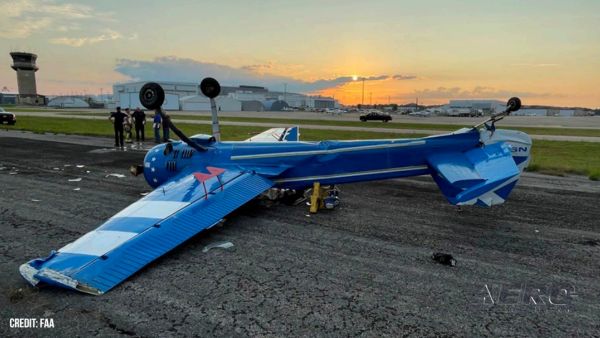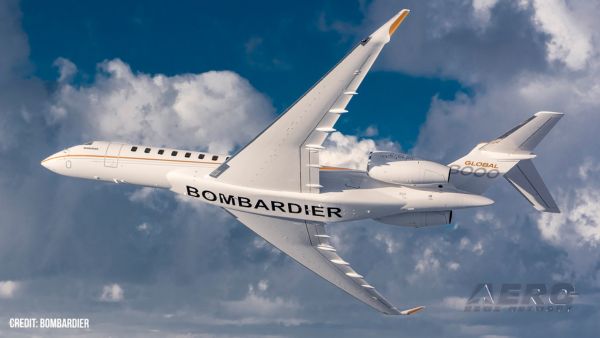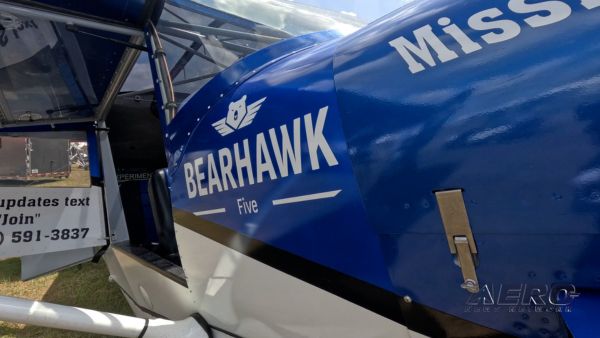President Has Questions About Top FAA Leadership
CEOs representing Airlines for America (A4A), the industry trade organization for the leading U.S. airlines, today met with President Donald Trump and senior White House officials to discuss the critical role that U.S. airlines play as drivers of the economy and job growth across the country.

A4A President and CEO Nicholas E. Calio, was joined by the following member CEOs at the White House meeting: Brad Tilden, Chairman and CEO, Alaska Air Group; Bill Flynn, President and CEO, Atlas Air Worldwide Holdings, Inc.; Dave Bronczek, President and Chief Operating Officer, FedEx Corporation; Robin Hayes, President and CEO, JetBlue Airways Corp.; Gary C. Kelly, Chairman and CEO, Southwest Airlines Co.; Oscar Munoz, CEO, United Continental Holdings, Inc.; Myron Gray, President, U.S. Operations, UPS.
“U.S. airlines are an integral part of our nation’s economy, as millions of Americans depend on safe, affordable and abundant air travel and shipping options each day,” said Calio. “We are grateful to President Trump for hosting this meeting and were encouraged by his in-depth understanding of our industry and the need to reform our air traffic control system. We share his administration’s goals of growing jobs, reducing taxes and regulation, and expanding our economy. We are confident we can achieve these outcomes by working together.”
Topics for discussion included:
- Jobs and Economic Impact: The U.S. airline industry is an integral part of the U.S. economy employing nearly 700,000 people. We operate 27,000 flights each day that carry 2.2 million passengers and 50,000 tons of cargo. See these fact sheets for more information about airlines’ investments in the customer experience and our employees, as well as how we contribute to airport financing.
- Air Traffic Control Modernization: The flying and shipping public deserve modernized air traffic control infrastructure. Unnecessary flight delays that are often the result of outdated, WWII-era technology and procedures cost the United States an estimated $25 billion in 2016 alone. Benefits of modernization will include: enhanced safety, reduced delays, fuel savings, reduced emissions, increased capacity and greater operational efficiency.
- Regulatory Reform: We need smart reforms that will unlock the industry’s potential to expand jobs and improve the customer experience, while maintaining the high level of safety we have today. Commercial aviation was deregulated almost 4 decades ago. Yet, we’re still subject to more than 13,000 regulations across 13 federal agencies – and that’s just in the United States.
- Taxation: Aviation is subject to 17 separate federal aviation taxes paid by airlines and their customers. Our passengers are over taxed and a portion of TSA and CBP so-called user fees are diverted to deficit reduction and other federal spending, paid by airlines and their customers. These taxes increased from $3.7 billion in 1990 to $23.1 billion in 2016. Currently, passengers pay 21 percent of a one-stop, round-trip domestic ticket in taxes, an excessive burden on our customers. You’d be hard pressed to find an industry with a greater federal excise tax burden than U.S. airlines. While the airports want an increase on the Passenger Facility Charge, the President stated that he does not like fees.
According to Politico, the President was less than complimentary of the FAA's implementation of NextGen, and renewed his pledge to rebuild airports around the country while not raising fares or fees paid by travelers.
“I hear the government contracted for a system that’s the wrong system,” Trump said during the meeting. “I hear we’re spending billions and billions of dollars. It’s a system that’s totally out of whack. It’s way over budget. It’s way behind schedule. And when it’s complete, it’s not going to be a good system. Other than that, it’s fantastic.”
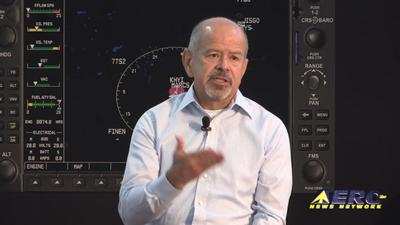
Trump also questioned FAA Administrator Michael Huerta's qualifications to lead the agency. "Is the gentleman who’s the head of the FAA right now not a pilot? I’d like to find out because I think it maybe would be good to have a pilot — like a really good pilot that knows what’s going on. ... I would think you need a very sophisticated person in that job," Trump said.
Politico reports that neither Trump or new Transportation Secretary Elaine Chao hae said whether they favor spinning off ATC from the FAA.
The FAA issued a statement following the meeting defending the NextGen system. "The FAA has spent $7.5 billion in congressionally appropriated funds on the air traffic modernization program known as NextGen over the past seven years. That investment has resulted in $2.7 billion in benefits to passengers and the airlines to date, and is expected to yield more than $160 billion in benefits through 2030," reads the statement form FAA spokesperson Laura Brown.
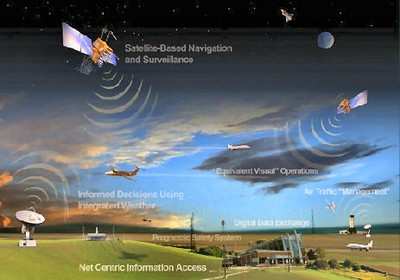
"NextGen is one of the most ambitious infrastructure and modernization projects in U.S. history. Its successful, ongoing rollout is the result of rigorous acquisition, program and portfolio management, and stakeholder engagement with the airline industry and other members of the aviation community. The FAA invited airline stakeholders to help develop the blueprint for NextGen and they continue to have a seat at the table in setting NextGen priorities and investments through the NextGen Advisory Committee.
(Images from file)
 ANN's Daily Aero-Term (05.24.25): Search And Rescue
ANN's Daily Aero-Term (05.24.25): Search And Rescue ANN's Daily Aero-Linx (05.24.25)
ANN's Daily Aero-Linx (05.24.25) Classic Aero-TV: Goodyear's Wingfoot One - What it Takes to Tour in a Zeppelin
Classic Aero-TV: Goodyear's Wingfoot One - What it Takes to Tour in a Zeppelin Airborne-NextGen 05.20.25: Drone Regs, Zero-Emission Cargo, Door-Dash Drone
Airborne-NextGen 05.20.25: Drone Regs, Zero-Emission Cargo, Door-Dash Drone Classic Aero-TV: Efficient Versatility -- NASA GL-10 Greased Lightning
Classic Aero-TV: Efficient Versatility -- NASA GL-10 Greased Lightning



